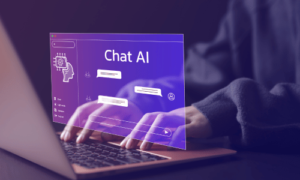
As we edge closer to a new era, the landscape of work is transforming at an unprecedented pace. Driven by relentless technological advancements, shifting economic paradigms, and the global aftermath of the COVID-19 pandemic, the future of work is not just an abstract concept—it’s the unfolding reality of our professional lives. This transformation poses both challenges and opportunities, requiring businesses and individuals alike to adapt and rethink their strategies for a future that’s already knocking on our doors.
The Changing Face of Work
The notion of a traditional 9-to-5 job in a centralized office is becoming increasingly outdated. The future points towards flexibility, digital nomadism, and work-from-anywhere models, underpinned by a significant shift towards contract and freelance work. These changes are not merely responses to the pandemic but are indicative of a deeper, more systemic evolution in how work is perceived and valued in society.
Technological Advancements: A Double-Edged Sword
Technological innovation stands at the forefront of this transformation, acting as both a catalyst for change and a source of concern. Artificial Intelligence (AI) and automation, while promising efficiency and the creation of new job categories, also bring about anxieties related to job displacement and the need for reskilling.
Embracing Remote and Hybrid Work
The adoption of remote and hybrid work models has demonstrated that productivity is not tethered to physical office spaces. Instead, it has highlighted the importance of work-life balance, employee autonomy, and the effectiveness of digital collaboration tools. This paradigm shift requires organizations to invest in technology and culture that support remote work, emphasizing trust and results over traditional metrics of productivity.
Critical Skills for the Future Workforce
The workforce of the future will need to be versatile, with a toolkit of skills that matches the demands of a digital, interconnected economy.
- Adaptability and Continuous Learning: The only constant in the future of work will be change. Professionals must therefore embrace adaptability and lifelong learning as core competencies, continually updating their knowledge and skills to stay relevant.
- Digital Literacy: In a world where digital platforms and tools are ubiquitous, digital literacy becomes critical. This goes beyond basic technical know-how, encompassing the ability to work effectively in a digital environment, understand data, and leverage technology to solve complex problems.
- Emotional Intelligence and Collaboration: As automation takes over routine tasks, the uniquely human skills of emotional intelligence, empathy, and collaboration become more valuable. These skills enable professionals to lead, innovate, and work effectively in teams, bridging gaps that technology alone cannot fill.
Strategies for Future-Ready Organizations

Businesses looking to thrive in the future of work must be proactive, not just reactive. This involves several strategic imperatives:
- Cultivating a Learning Culture: Organizations should foster environments where continuous learning is encouraged and supported, providing access to training and development resources that empower employees to grow with the company.
- Building Flexibility and Resilience: The future belongs to those who can quickly adapt. Companies must develop flexible work policies and create resilient operational models that can withstand economic and global uncertainties.
- Promoting Innovation and Inclusivity: Embracing diversity and fostering a culture of innovation are key to unlocking the creative potential of the workforce, driving forward-thinking solutions and ensuring a wide range of perspectives are considered in decision-making processes.
Conclusion: A Call to Action
The future of work is not a distant reality—it’s here, and it’s shaping our professional landscapes in real-time. By understanding the forces at play, embracing the required skills, and implementing strategic adaptations, both businesses and individuals can navigate the uncertainties of this new era with confidence. The future of work holds immense potential for those prepared to seize it, offering opportunities for growth, innovation, and unprecedented flexibility.
We invite you to share your insights and experiences as we explore the evolving landscape of work together. How are you or your organization adapting to these changes? What strategies have you found effective, and what challenges are you facing? Join the conversation below, and let’s navigate the future of work as a community, leveraging our collective wisdom to thrive in this new era.
Discover related content by exploring The Future of E-Commerce: Evolving Trends and Bold Predictions





